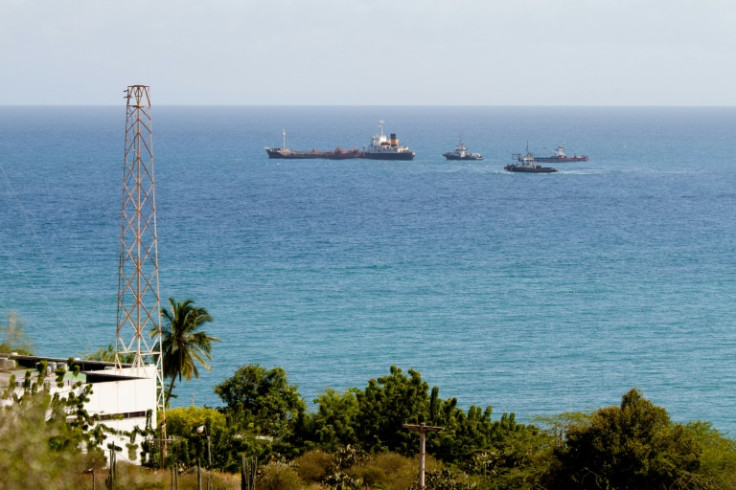
The United States said Wednesday it will snap back sanctions on Venezuela's crucial oil industry after President Nicolas Maduro's government continued its repression of opponents.
President Joe Biden's administration suspended some sanctions after Maduro's government and the opposition agreed in Barbados last October to hold a free and fair vote in 2024 under the watchful eye of international observers.
But the thaw ended when Maduro's opponents were not allowed to run against him in elections, and the United States said Caracas had now failed to make progress ahead of an April 18 deadline.
"We are concerned that Maduro and his representatives prevented the democratic opposition from registering the candidate of their choice, harassed and intimidated political opponents, and unjustly detained numerous political actors and members of civil society," State Department spokesman Matthew Miller said in a statement.
"We again call on Maduro to allow all candidates and parties to participate in the electoral process and release all political prisoners without restrictions or delay."
Oil companies would have a winding-down period until May 31 to comply with the sanctions, Miller said.
Senior US administration officials described a "continuing pattern of harassment and repression against opposition figures."
However Washington would "continue to assess sanctions policy" based on the Maduro government's actions leading up to the election, the State Department said.
Venezuela has the largest proven oil reserves in the world, but production has plummeted after years of mismanagement and crushing sanctions.
Caracas vowed its oil sector would keep going regardless of US policy.
"We will not stop, with or without a license," Petroleum Minister Pedro Tellechea told reporters ahead of Washington's announcement.
The sanctions move is not without risk for Biden as he makes his own bid for reelection this year.
Venezuelan authorities have previously threatened to hit Biden in the sensitive area of migration. More than seven million Venezuelans have fled over the past decade, with many coming to the United States.
Caracas has previously warned it will cancel migrant repatriation flights which started under the October deal if Washington continues with its "economic aggression."
Sanctions could also hit oil prices just as Americans face growing costs at the pump and rising inflation, and polls show that US voters are not buying Biden's sunny messages about the economy.
The Barbados agreement collapsed after state institutions loyal to the regime disqualified Maduro's main challenger Maria Corina Machado, and a proxy, from running in the elections due on July 28.
Maduro, the anointed heir of the late firebrand anti-US leader Hugo Chavez, will be seeking a third six-year term after 11 years in office marked by sanctions, economic collapse and accusations of widespread repression.
Dozens of countries including the United States rejected the results of 2018 elections that were won by Maduro and boycotted by the opposition.
Most Western and Latin American countries switched recognition to then opposition leader Juan Guaido.
But years of sanctions and other pressure failed to dislodge Maduro, who enjoys support from a political patronage system, the military and from Cuba, Russia and China.
The Biden administration, after initially keeping the sanctions approach of his predecessor Donald Trump, shifted gears.
In November, Washington gave a green light to US oil giant Chevron to operate in Venezuela and, just before Christmas, Venezuela freed 10 detained Americans in a swap with the United States which released a Maduro confidant.
Washington has already reimposed sanctions in the gold mining sector.
On Wednesday, Tellechea said Venezuela would not "stop producing, marketing, exploiting our reserves," adding that "transnational corporations will continue to come."








